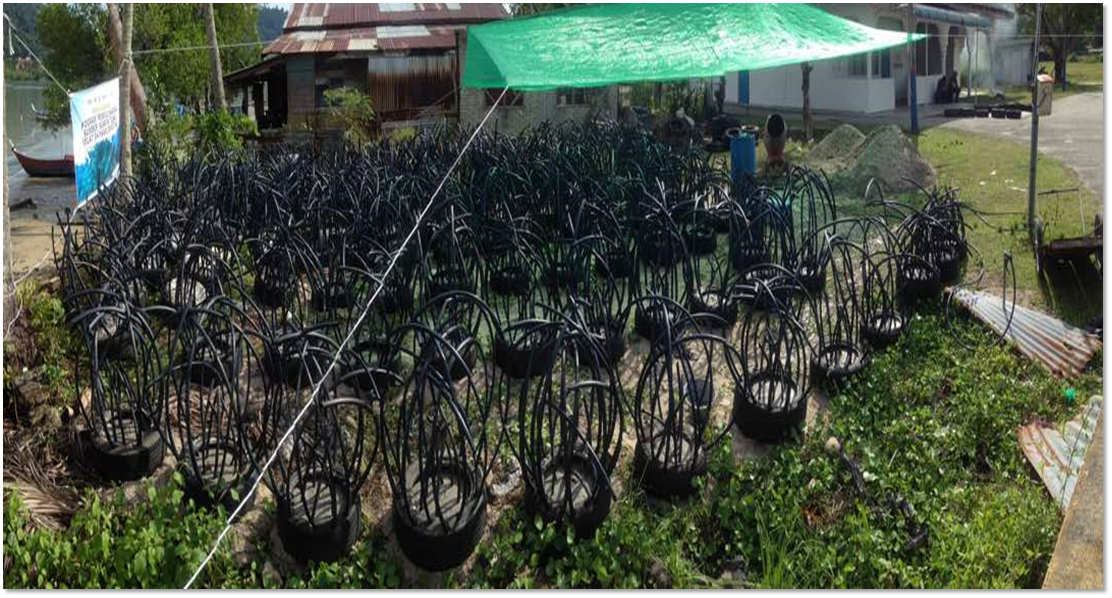APEHAL PPROJECT: SUSTAINING MARINE LIFE AND COMMUNITY PROSPERITY IN LANGKAWI

Construct and install FADs or APEHAL: over 300 units in 12 clusters deployed in Sungai Dayang Bunting. SGP Grant Project – Mal/SGP/OP5/Y4/STAR/BD/15/03
Introduction
FLAG (Friends of Langkawi Geopark), a non-profit organization, initiated the APEHAL (Alat Pemuliharaan Hidupan Laut) project in January 2014, aligning with the sustainable development concept of Langkawi UNESCO Global Geopark. This innovative Fish Aggregating Device (FAD) was developed under the Global Environment Facility Small Grant Project to enhance fish population and provide a secondary habitat for marine life, particularly in the tidal river of Dayang Bunting.

Background
The project area, encompassing Pulau Tuba and Pulau Dayang Bunting's Kampung Selat Bagan Nyior, is vital for the local population of approximately 4,000 people. With a predominant focus on agriculture and a growing tourism industry, the fishing grounds around these islands serve as a lucrative resource. The APEHAL project was strategically initiated to address declining yields and promote marine conservation in this abundant area.

Justification
Studies by Prof. Che Rahim and Mr. Jamil Tajam highlighted the rich marine life and favorable water quality in the area. Despite government efforts with artificial reefs, concerns about declining yields prompted the APEHAL project. By providing shelter for juvenile fish, the project aims to boost fish population, stimulate fish harvests, and create new economic activities like recreational tourism, sport fishing, aqua farming, and floating seafood restaurants.

Concerns and Controversy
Controversy surrounds the use of recycled car tires in the APEHAL project. Some express concerns based on international cases of tire-related ocean pollution. However, the project team asserts that their use of tires is vastly different from dumping, as they are employed as molds for concrete bases. The scale of tire usage is minimal and tailored to the unique environment of Langkawi.
Conclusion
The APEHAL project stands as a pioneering effort in Langkawi, aiming to bolster marine life while fostering socio-economic activities. While concerns exist, the project team emphasizes the distinct approach taken, opening avenues for further empirical studies in marine science and technology. As Langkawi experiences a boost in fishing activities within six months of the project's implementation, the true success and long-term impacts are subjects for ongoing observation and research. The APEHAL model may serve as a blueprint for similar initiatives, contributing to sustainable development and conservation efforts in other regions.
Please Donate Now for an ongoing preservation effort by FLAG.